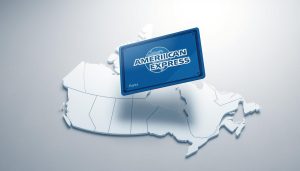Can a traveler from abroad rely on a plastic card the same way locals do in daily life, or will their banking habits need a rethink?
This short, practical introduction orients expats to how credit, cards, banks, and accounts fit into Dutch routines. It highlights why a credit card still has value for travel, online bookings, and emergencies in a culture that favors debit and bank transfers.
Readers will learn what they need to know before applying: common documentation, timelines, and how local banking differs from other countries. The article previews eligibility, major issuers such as ING, ABN AMRO and Rabobank, fees, and realistic use cases.
It aims to help expats Netherlands compare options and pick the right product without wasting time or money. The tone is practical and present-focused, so readers can act with confidence in their new daily life.
Why credit cards work differently in the Netherlands
Expats quickly notice that everyday spending here leans heavily on direct bank transfers and debit usage. The local payment system relies on instant app payments and national schemes, so many small shops accept a debit card but not foreign credit lines. iDEAL and QR-based options tie transactions to a Dutch account, making banking apps central to daily life.
Dutch banks and retailers tend to avoid revolving debt. Banks evaluate applicants carefully, so newcomers may face stricter checks before getting a credit line. As a result, credit is kept for travel, online bookings, deposits, or emergencies rather than routine shopping.
Cash is fading, so a local debit card is practically required for groceries, transport, and small business payments. Touristy areas and larger chains may accept credit, but neighborhood stores usually prefer direct bank payments. Expats should carry a credit card for specific needs and use local systems to avoid payment friction and extra fees.
Eligibility and setup: what expats need before applying
Most applicants find that establishing residency and a local account clears the path to a card. They must register with the municipality and get a BSN number to prove identity and residency.
Next, open bank account procedures usually require proof of address, a passport, and salary details. A dutch bank account is the common billing route, so opening a dutch bank or a basic bank account Netherlands is often the precursor to any application.
Banks check national BKR files rather than foreign credit histories. They look at employment type, income stability, and time in the country. Full-time contracts and steady salaries speed approvals and can increase limits.
Processing times vary: ICS cards can take 5–10 working days and bank-branded options around 10 working days. Applicants should have recent payslips ready and ensure the mobile phone number on file receives security codes from banking apps and service messages.
To reduce delays, expats should confirm salary deposits, account activity, and address registration during the first month. Choosing expat-friendly banks with English apps helps smooth the setup process.
Understanding the Dutch credit card system at a glance
In everyday Dutch payments, bank-backed systems and instant transfers lead the way. Debit and account-to-account flows like iDEAL dominate point-of-sale transactions, so many shops prefer a debit card or app payment over a credit option.
Most cards issued locally use chip & PIN and contactless for small transactions. They also work with Apple Pay and Google Pay, which makes in-store checkout quick and secure.
Online shopping often routes through banking apps or QR authorizations rather than full card entry. As a result, people usually pay their monthly balance in full at the end of the billing cycle to avoid interest charges.
Visa and Mastercard see broad acceptance in retail and travel. American Express is less common and often limited to larger merchants. Expats should expect acceptance differences by merchant type and carry a debit card or iDEAL-ready account as a backup.
understanding credit cards Netherlands guide: types of cards you can get
Expats face two clear paths when choosing a payment option: a card from a dutch bank or a stand-alone international product. Bank-issued cards are often Mastercard variants issued via ICS for ABN AMRO, ING, Rabobank, ASN and Knab. These usually require a local account and integrate with the bank’s app.
Independent ICS Visa and Mastercard products work well for broad acceptance. They commonly charge about 2% on non-euro transactions. American Express operates here as a charge card with roughly 2.5% FX on foreign spending and requires full monthly repayment.
Using a card from home may help during early weeks but can add foreign transaction fees and worse exchange rates. Many choose one local card for daily spending and iDEAL transfers, plus one international card for travel. That balance helps control fees, improves acceptance, and keeps benefits like rental car coverage and travel insurance.
Top Dutch bank credit cards and key requirements
Picking the right bank-issued card often comes down to income thresholds, annual fees, and app support.
ABN AMRO issues Mastercard options via ICS with English service. The standard card costs €25.80 per year and the Gold €53.40. Both include 180–365 day purchase protection and travel insurance. The minimum net monthly income is about €1,150; a student card runs €13.92 with a €500 income floor.
ING offers a Creditcard (€22.80/yr) and a PlatinumCard (€52.20/yr). These deliver 180–365 day protections, while Platinum adds rental and travel coverage. ING requires at least €650 per month into the account.
Rabobank’s RaboCard and GoldCard tie to account packages. Protections range from 180 to 360+ days and fees vary by bundle. ASN and Knab use ICS-branded Visa/Mastercard with annual costs near €24–€35 and standard 180-day protection.
Non-euro purchases normally carry about a 2% FX fee. Approval often takes around 10 working days and needs income verification. Choose by app language, bundled insurance, purchase protection length, and how salary flows into the bank account.
ICS Visa and Mastercard: widely accepted options for expats
For expats seeking a bank-independent option, ICS Visa and Mastercard provide predictable tiers and broad acceptance. They sell Visa World (€42.95/yr), Gold (€57.95/yr) and Platinum (€175/yr), and Mastercard Classic (€35.95/yr), Gold (€45/yr) and Black (€225/yr).
Protection windows range from 180 to 365 days and travel insurance rises with each tier. The Black card adds AXA cover and four Priority Pass lounge visits, useful for frequent travelers.
Typical FX fees on non-euro spending run about 2%. Income rules normally start around €1,150 net per month and initial limits often sit between €1,000 and €5,000. Applications take roughly 5–10 working days.
Cards work with Apple Pay and contactless. Admin and limits are handled in the ICS app and portal, which needs an up-to-date phone number for security codes. Interest applies if balances are not paid in full.
Many expats pair an ICS product with a local bank account and debit card to cover everyday spending and booking gaps, balancing acceptance with cost and convenience.
American Express in the Netherlands: when it makes sense
For expats who fly often or pay mainly with international merchants, American Express can deliver more value than a typical local option.
Amex sells charge products (Platinum €780/yr, Gold €240, Green €78, Blue €35) and Flying Blue co-brands (Platinum €660, Gold €198, Silver €75, Entry €36). These require full monthly repayment and are not registered with BKR.
Benefits include lounge access, strong travel insurance, dining credits, and points or miles (1 MR/€1 on Membership Rewards; up to 1.5 miles/€1 on Flying Blue Platinum). FX costs run ~2.5% for non-euro spending, so factor foreign transaction fees into totals.
Income thresholds typically start around €20,000–€30,000 gross and approvals can take up to 10 working days. The high annual fees suit those who use perks enough to offset costs.
Many combine Amex with a widely accepted Visa or Mastercard from a dutch bank to cover daily acceptance. That mix preserves rewards while keeping money access and account flexibility for local purchases, business or travel funds.
💡Step by step guide to online credit card applications in the Netherlands
Costs, rates, and real-world usage tips
Knowing how much a card will cost helps expats manage money and avoid surprises. Typical annual fees sit between €15 and €60 for standard tiers, with higher prices for premium options. Non-euro FX fees usually run about 2–2.5% on foreign purchases.
Interest on revolving balances is commonly in the mid-teens APR, so many people set a direct debit to pay the full balance at the end of each cycle. That habit prevents expensive interest and matches local payment routines where debit and iDEAL lead domestic transactions.
Keep a local bank account for daily payments, Tikkie transfers, and small business purchases. Tikkie needs a Dutch phone number, and many small merchants prefer a debit card or bank transfer over a foreign charge method.
Budget for annual fees and FX costs, and check whether travel insurance or purchase protection offsets the expense. Use banking apps to monitor activity, lock the card instantly, and update contact details so security codes arrive without delay.
When traveling, carry a widely accepted Visa or Mastercard as backup. Compare banks and accounts with English app support—ABN AMRO and ING often offer smoother setups for expats. In short, plan costs, use local systems for routine payments, and reserve the card for travel, deposits, and online purchases to keep overall money charges low.
Bringing it all together for expats in the Netherlands
Settling in is easier with one local bank account and a small, smart card stack.
Start by opening a dutch bank account, registering for a BSN, and linking a debit card for daily payments. Then add a credit card for travel, deposits, and online bookings to avoid cash gaps.
Many expats netherlands pair a bank-issued product (from abn amro or ING) with an ICS Visa or Mastercard. American Express may also suit frequent flyers, but a widely accepted backup helps where AMEX is limited.
Choose cards by fees, protection, and app support. Confirm phone authentication works, monitor transactions, and pay balances in full to avoid interest. With these steps, everyday banking and travel stay simple from day one.



